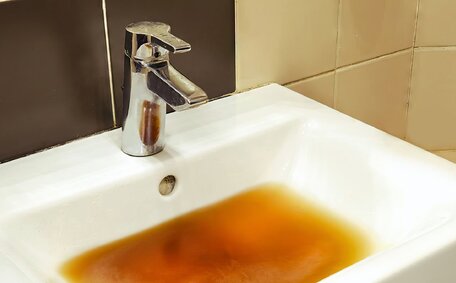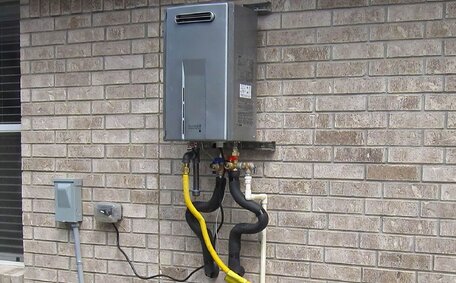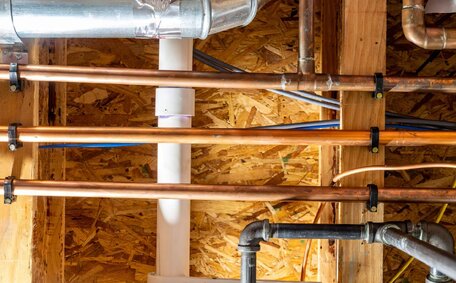Introduction to Hot Water Systems
Having the right hot water system in your home is crucial for ensuring you have access to hot water whenever you need it. With so many types of systems available, from electric and gas to solar and heat pump, it can be tricky to know which is best suited for your household’s needs.
In this guide, we’ll provide an overview of the main types of hot water systems, the pros and cons of each, and what to consider when choosing one for your home.
We’ll cover storage versus continuous flow systems, upfront costs versus running costs, and how factors like climate and availability of gas supply impact your decision.
By understanding the key differences between the various hot water system options, you’ll be equipped to select one that provides your household with efficient, cost-effective hot water for years to come.
Types of Hot Water Systems
There are four main types of hot water systems available for homes:
Electric Storage
Electric storage hot water systems use heating elements to heat water stored in an insulated tank. They are relatively inexpensive to install but can have higher running costs as electricity is typically more expensive than gas.
Gas Storage
Gas storage systems heat water in an insulated tank using a gas burner or heat exchanger. They heat water faster than electric systems. Gas is generally cheaper than electricity, so running costs are lower.
Solar
Solar hot water systems use roof-mounted solar panels and a storage tank. The sun’s energy heats the water, reducing electricity or gas usage. Solar systems have a high upfront cost but lower long-term running costs.
Heat Pump
Heat pump systems extract heat from the air to warm water stored in a tank. They are energy efficient but have a high installation cost. Heat pumps work well in mild climates.
When choosing a hot water system, consider upfront costs, running costs, climate, and availability of electricity and gas connections. Consult with a plumber to determine the most suitable and cost-effective option for your home.
Electric Hot Water Systems
Electric hot water systems are one of the most common types used in Australian households, making up around 50% of systems. They work by using electric heating elements to heat water stored in an insulated tank.
Some key advantages of electric hot water systems include:
- Lower upfront costs - electric systems are relatively inexpensive to purchase and install.
- Easy to install and service - electrical connections are straightforward.
- Well-suited to milder climates - unlike solar or heat pumps.
However, there are some downsides to be aware of:
- Running costs can be higher - electricity is generally more expensive per unit than gas.
- Slower heat-up times - electric elements take longer to heat water than gas burners.
- Higher energy usage - electric heating is typically less efficient than gas, solar or heat pumps.
Electric systems may be the best choice if you want a low upfront cost and don’t require very fast water heating. Just be prepared for potentially higher energy bills. Consult with a licenced plumber to determine if an electric hot water system is suitable for your home.
Gas Hot Water Systems
Gas hot water systems heat water using natural gas or LPG burners. The gas heats a storage tank, heating coils, or on-demand continuous flow unit.
Some benefits of gas hot water systems include:
- Faster heat-up times - gas burners can heat water around twice as quickly as electric elements.
- Lower running costs - natural gas is typically cheaper per unit than electricity.
- Higher efficiency - gas is better at rapidly transferring heat energy to water.
However, there are also some downsides:
- Higher upfront costs - gas systems usually cost more to purchase and install.
- Require gas connection - a gas line must be installed and connected.
- External fluing required - fumes need to be vented outside.
Gas systems are a good option if you want fast water heating and lower energy bills, and already have a natural gas connection. They can supply continuous hot water to multiple bathrooms. Consult a qualified plumber to advise on the best gas hot water system for your home.
Solar Hot Water Systems
Solar hot water systems are an eco-friendly, energy-efficient option that harness the sun’s renewable energy to heat water. They work by circulating water or a glycol mix through solar collectors (panels) mounted on the roof.
The benefits of solar hot water systems include:
- Lower running costs - After the initial installation, energy is free from the sun.
- Lower greenhouse emissions - Solar is a clean, renewable energy source.
- Rebates available - The Australian government offers rebates for installing solar hot water in suitable households.
- Reduce electricity bills - Solar can displace up to 60% of water heating costs.
- Long lifespan - Collectors typically last 15-20 years with minimal maintenance.
However, solar hot water does have some drawbacks:
- High upfront cost - The initial purchase and installation cost is higher than electric or gas systems.
- Space required - Solar collectors take up additional roof space.
- Supplementary boosting required - A gas or electric booster ensures hot water on cloudy days.
- Regional dependence - Solar works optimally in sunny environments.
Weighing up these pros and cons will determine if solar hot water is the right system for your home. Speak to a licenced plumber about whether you are eligible for government rebates, and for advice on the best solar hot water system for your household.
Heat Pump Hot Water Systems
Heat pump hot water systems are an energy-efficient option that can help lower your household’s water heating costs. They work by extracting heat from the surrounding air and using this thermal energy to heat water stored in an insulated tank.
Some of the benefits of heat pump systems include:
- Very high efficiency - heat pumps can produce 2-3 times more energy than they consume in electricity.
- Lower energy bills - their efficiency means lower running costs than electric or gas heaters.
- Environmentally friendly - heat pumps produce fewer greenhouse gas emissions.
- Can work in any climate - unlike solar, heat pumps extract heat from the air so work year-round.
However, some downsides to consider are:
- Higher upfront cost - heat pumps have a more expensive purchase and installation price.
- May require larger outdoor space - the external heat pump unit is bigger than a solar collector.
- Can be noisy - the external unit has moving parts like a refrigerator that generate noise.
Despite the higher initial cost, a heat pump system can save the average household hundreds of dollars per year on energy bills through its efficiency. They work best in mild to warm climates. Consult with a qualified plumber to determine if a heat pump is the most suitable water heating choice for your home.
Choosing the Right Hot Water System
With several types of hot water systems to choose from, it’s important to select the one that best suits your household’s needs and budget. Here are some key factors to consider when deciding on the right system:
Upfront Cost vs Operating Costs
While electric and gas storage systems have lower upfront costs, running costs are higher. Solar and heat pumps cost more initially but have much lower operating expenses.
Climate and Location
Solar works best in sunny areas. Heat pumps are more efficient in warm climates. Gas requires a mains connection, which may not be available everywhere.
Energy Efficiency Needs
Heat pumps and solar systems are extremely energy efficient. If you want to conserve energy, these are great options.
Hot Water Demand
Consider your household’s typical hot water usage. Storage tanks may not meet high demand. Continuous flow gas systems provide unlimited hot water.
Environmental Impact
For the lowest carbon footprint, solar and heat pump systems are the most environmentally friendly.
Consulting with a professional plumber is recommended to assess your household’s needs and advise on the most suitable and cost-effective hot water system for your home.
Comparing Hot Water Systems
When deciding between different types of hot water systems, it’s helpful to compare them across a few key factors:
Upfront Cost
Electric and gas storage hot water heaters tend to have the lowest upfront costs. Heat pumps and solar hot water systems have higher initial purchase and installation costs.
Operating Costs
Electric and gas storage systems have higher energy bills over time. Solar and heat pumps cost less to run in the long term.
Heat-Up Time
Gas systems heat water the fastest - around twice as fast as electric storage heaters. Heat pumps and solar take longer to heat water.
Energy Efficiency
Heat pumps and solar hot water are the most energy efficient options. Electric is the least efficient for heating water.
Solar and heat pump hot water systems have the lowest carbon footprint. Electric and gas systems produce more greenhouse gas emissions.
Considering these factors together will help determine the most suitable hot water heater for your household’s specific requirements.
Maintenance Tips for Your Hot Water System
To keep your hot water system operating efficiently for years to come, it’s important to perform regular maintenance. Here are some handy tips:
Flush The System
Annually flushing out the water heater and pipes helps remove sediment buildup and improve water flow. Turn off the electricity or gas supply first for safety.
Check For Leaks
Inspect valves, fittings, and pipes for any drips or leaks. Catching minor leaks early prevents more costly repairs down the track.
Clean The Tank
Over time, scale and rust can accumulate inside the storage tank. Have a plumber drain and de-scale the tank every 2-3 years.
Maintain Water Pressure
Consistent water pressure between 200 to 500 kPa ensures efficient operation. Install a pressure limiting valve if pressure is too high.
Replace Anodes
The sacrificial anode rod inside the tank should be replaced every 4-5 years to maximise tank life.
Be on the lookout for any rumbling sounds, cold water in hot taps, or a drop in water pressure, as these can indicate problems. With regular servicing and maintenance, your hot water system can provide reliable hot water for many years.






